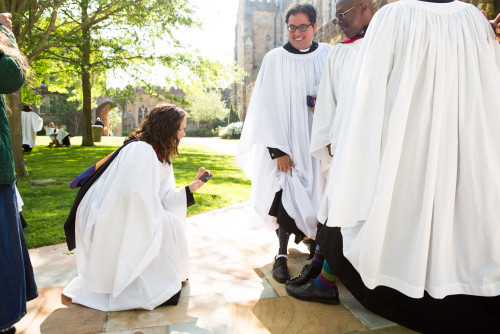Language matters.
It shapes our sense of reality, and is therefore crucial for our understanding of God and others. Through language we forge and maintain our relationships with God and one another.

The School of Theology Language Policy
Written and spoken language used by students and faculty when referring to humanity shall be gender inclusive. It shall avoid perpetuation of derogatory stereotypes such as those based on gender, age, race, ethnicity, ability, religion, sexual orientation, or birth or family status. Language about God is primarily analogical and metaphorical. Written and spoken language referring to God shall therefore avoid exclusive use of masculine language and imagery. When speaking and writing about God, students and faculty shall draw on the diverse and expanse images used in Scripture, tradition, and the arts.
INCLUSIVE LANGUAGE
Our language often has built-in biases that exclude and harm some persons. When exclusive language is used, we fall short of our calling to respect all who are created in the image of God. By using inclusive language for humanity, we respect the dignity of every human being.
EXPANSIVE LANGUAGE
Expansive Language seeks to tell as much truth about God as we can, utilizing the full range of language available to us. It does not displace traditional language for God, but uses additional metaphors. Of course, no human language can contain God. Even so, our theologies of creation, the Incarnation, and the Resurrection affirm that the material world, including language, is a means to understand God in a more faithful way.



